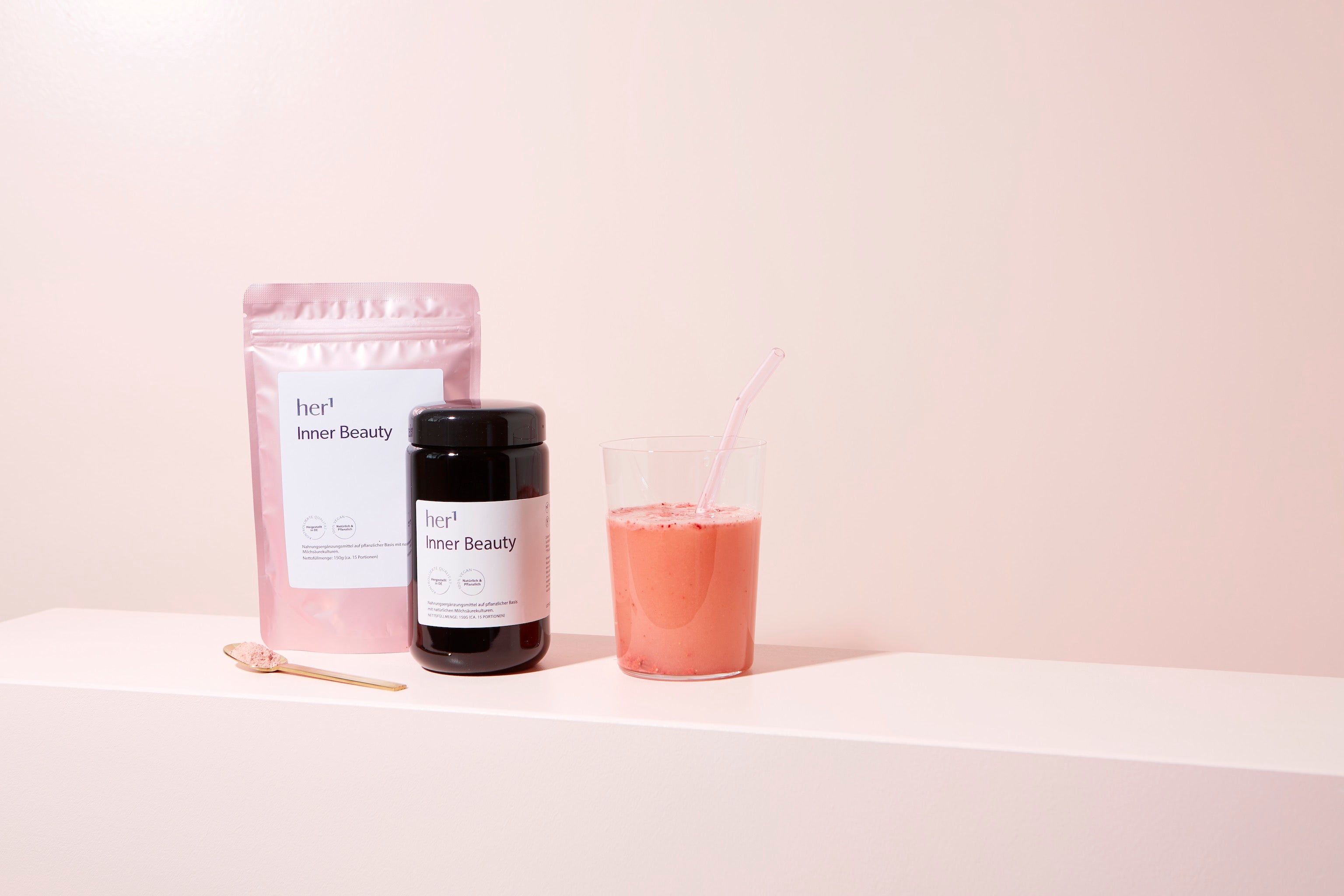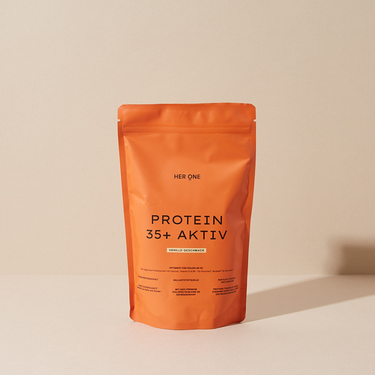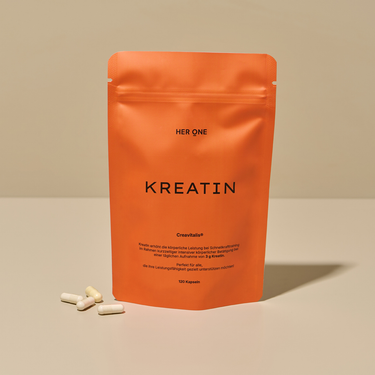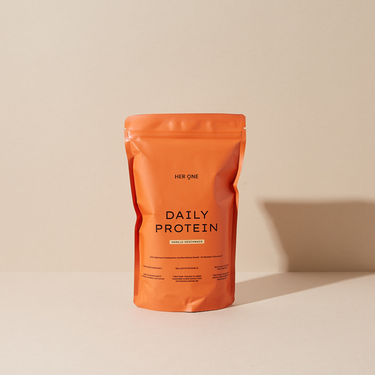The Gut is not just at the center of our bodies - it is considered the center of our health. Its main task is to break down food into the micro- and macronutrients that give us energy and keep us alive every day. But that's not all: the Gut is a detoxification organ, contains the majority of our immune cells, produces hormones, vitamins and other messenger substances, and influences our physical and emotional well-being.
Such an important and versatile organ deserves to be taken care of. A modern lifestyle with long periods of sitting, a lot of stress, hasty eating, processed foods, industrial sugar and alcohol is poison for the Gut. If antibiotics are added to the mix, problems with digestion are virtually pre-programmed.
The Gut is happy with fiber, regular and well-chewed meals, exercise, water and probiotics. But before you reach for the first probiotic suggested in an Internet search, it's worth taking a careful look at the ingredients list. Probiotic supplements often contain a lot of unnecessary additives that, in the worst case, have a negative impact on health.
Content:
- What are dietary supplements anyway?
- Typical additives of dietary supplements: Aluminum
- Typical additives of dietary supplements: Nanoparticles
- Typical additives of dietary supplements: Sugar in various forms
- Typical additives of dietary supplements: Aspartame and other sweeteners
- Typical additives of food supplements: Preservatives
- Typical additives of food supplements: Colorants
- Typical additives of food supplements: synthetic vitamins
- Typical additives of food supplements: animal ingredients
- Inner Beauty in focus: Free from harmful additives
1. what are dietary supplements anyway?
Dietary supplements come in a wide variety of forms: Powder, pills, capsules, drops. But if you think of pharmaceuticals when you think of the form, you're wrong. Medicines are designed to cure diseases - dietary supplements, in the literal sense, to supplement the general diet.
Individual nutrients or combinations of nutrients are contained in food supplements in concentrated form. They can alleviate deficiencies caused by an unbalanced or deficient diet, but cannot replace a healthy lifestyle.
While medicinal products are subject to the German Medicinal Products Act, food supplements are considered to be foodstuffs and are governed by food law and the Food Supplements Ordinance (Nahrungsergänzungsmittelverordnung). The regulation specifies which vitamins and minerals may be marketed as food supplements. Similarly, it is regulated throughout the EU which additives may be used in foods and thus food supplements.
Unfortunately, the list of permitted food additives reads anything but delicious: sweeteners, colorings, preservatives, antioxidants, release agents, fillers, flavor enhancers, stabilizers. All permitted as long as they "improve the properties of food, influence its taste, improve its appearance, shelf life or facilitate technological processing." - according to the Federal Office of Consumer Protection and Food Safety.
2. typical additives of food supplements: Aluminum
Since aluminum hit the headlines in connection with increased Alzheimer's risk, many people make sure when buying deodorant to choose a product without aluminum salts. But aluminum is not only used in the manufacture of cosmetics. The abbreviations E 554, E 555 and E 1542, for example, refer to fillers and carriers containing aluminum that are used in the manufacture of food supplements.
Aluminum can accumulate over the course of a lifetime, particularly in the lungs and skeletal system, and is considered harmful to the nervous system, bone development and fertility. Furthermore, it is associated with the development of breast cancer and the already mentioned Alzheimer's disease.

3. typical additives of food supplements: Nanoparticles
Nanoparticles are tiny particles that are about 50,000 times smaller than the diameter of a human hair. Due to their minimal size, they can penetrate cells and organs more easily than visible particles and have a toxic effect there. According to information from the Bund für Umwelt und Naturschutz Deutschland e.V. (BUND), titanium dioxide nanoparticles in particular are associated with inflammation in the gastroGut tract.
Titanium dioxide is a nanoparticle that is suspected of promoting inflammation in Gut . As E171, titanium dioxide in foods, medicines and dietary supplements ensures that the products look particularly shiny and fresh. Titanium dioxide ensures that chewing gum, mozzarella and food supplements are particularly bright white. Questionable study results are the reason why titanium dioxide may no longer be used in foods in France from 2020.
4. typical additives of food supplements: Sugar in a wide variety of forms
Too much sugar is unhealthy - that's common knowledge. The energy supplier, in excess is associated with diabetes, cardiovascular disease, obesity and even mental illness. Nevertheless, sugar is often found as an ingredient in dietary supplements. Especially powders that are drunk stirred as a shake often show sugar as one of the first ingredients.
Instead of "normal" sugar (sucrose), simple sugars such as glucose or dextrose, fructose or lactose are also used in dietary supplements. While glucose has a particularly strong effect on insulin levels, the consumption of fructose and lactose can be problematic for people with intolerances.
In contrast to the monosaccharides and disaccharides, the polysaccharide maltodextrin causes insulin levels to rise less steeply. Nevertheless, maltodextrin is not suitable for diabetics. With the same number of calories per gram, the polysaccharide tastes less sweet than household sugar and therefore has less of a sweetening function in dietary supplements than that of a filler, thickener, extender or carrier substance.
Incidentally, when stating the energy balance of a food or dietary supplement, maltodextrin is not included in the sugar content, but only in the carbohydrate content of the product. A product that contains maltodextrin instead of "normal" sugar can accordingly be advertised as "reduced sugar" even though the total calorie count of the product is the same.

5. typical additives of dietary supplements: Aspartame and other sweeteners
If dietary supplements are to taste particularly sweet but still be suitable for diabetics, artificially produced sweeteners are used. Acesulfame (K) (E 950), cyclamate (E 952), saccharin (E 954) and the heavily criticized aspartame (E 951) are the most common. In total, eleven synthetically produced sweeteners are approved as ingredients for food in the EU. Strict regulations apply to sweeteners with regard to the maximum permitted amounts, which are based on the "acceptable daily intake".
After aspartame was increasingly linked to adverse effects such as headaches, allergies, epilepsy, cancer and obesity in various studies, the European Food Safety Authority (EFSA) undertook a re-evaluation of aspartame's hazardous effects on health.
The reassessment was published in 2013 and a daily dose of 40 milligrams of aspartame per kilogram of body weight was declared safe. According to the sweetener lobby, this maximum value means that a person weighing 60 kg could drink up to 4 liters of diet lemonade a day without hesitation. What effect this has on health apart from aspartame is another matter.
6. typical additives of food supplements: Preservatives
For food supplements, sorbic acid (E 200) and benzoic acid (E 210) and their respective derivatives are permitted as preservatives. However, these substances are associated with dangerous allergic reactions in consumers. Particularly in asthmatics and people who have an intolerance to aspirin or salicylic acid, cramps and digestive problems have been observed. In addition, there is a suspicion of hereditary genetic damage and a connection with ADHD in children.
The preservatives E 200, E 202, E 203, E 210 - 213 are also widely used in the production of food. When consuming several food and food supplements that individually comply with the limits, it is easy to exceed the maximum daily intake of 5 milligrams per kilogram of body weight set by the legislator.

7. typical additives of food supplements: Colorants
Just like food, many dietary supplements cannot do without artificial colorants. The so-called azo dyes tartrazine (E 102), yellow orange S (E 110), azorubin (E 122), allura red (E 129) and cochineal red A (E 124) are particularly critical. Products containing these dyes must be labeled in the EU with the warning "May impair activity and attention in children".
Nevertheless, the dyes, which in addition to ADHD are also associated with allergic reactions of the respiratory tract, the skin and even cancer, are not banned in Germany. While the local consumer groups are still calling for a ban on their use, countries such as Norway and the USA have already gone further and ban the use of at least some of the azo dyes.
8. typical additives of food supplements: synthetic vitamins.
Probiotics in particular often contain synthetically produced vitamins and minerals that are intended to provide additional support for Gut and intestinal function. When taking synthetic vitamins, however, it must be remembered that vitamins never occur in nature in isolation, but always in a natural complex of active ingredients that depends on the respective source, for example, plant-based.
In food supplements, synthetic vitamins are usually contained in high doses, which correspond to the recommended daily dose or even exceed it. Anyone who takes several dietary supplements containing the same active ingredient in parallel risks an overdose. And this can have serious health consequences in the case of fat-soluble vitamins such as vitamin A, E or D.
Another criticism of synthetic vitamins is their production. Just like sweeteners, flavors, or taste enhancers, vitamins are often produced with the help of genetically modified microorganisms, such as fungi, yeasts, or bacteria. Products containing additives produced in this way do not have to be labeled separately.

9. typical additives of food supplements: animal ingredients
Probiotic supplements usually contain lactic acid bacteria, which raises the question of whether these preparations can also be taken by vegans or people with lactose intolerance. However, the name is misleading at this point: most lactic acid cultures are vegan. The situation is different with some ingredients and additives found in dietary supplements.
Gelatine (E 441) is often used for capsules or as a coating agent for tablets. And other E numbers also conceal ingredients of animal origin. E 120 is true carmine, a colorant obtained from red lice. E 901 is beeswax, E 904 is shellac, a coating agent made from the excretions of lice, and E 966 or lactitol is obtained from lactose.
10. Inner Beauty in focus: Free from harmful additives
The principle of her1 is to avoid unnecessary additives. The recipe of Inner Beauty therefore contains only five natural ingredients: freeze-dried strawberries, baobab pulp, pea protein, inulin from agave and lactic acid bacteria.
One daily serving provides 25 billion viable vegan lactic acid cultures. The high dose ensures that even after the passage through the stomach, enough bacteria arrive at Gut to develop their health-promoting effect there. To support the multiplication of bacteria in Gut , Inner Beauty contains the prebiotic inulin in addition to vegetable fiber.
So that Inner Beauty does not lose its bright pink color from natural strawberry pulbver, we use a special glass as packaging. The deep purple Miron glass protects Inner Beauty from harmful UV rays. In addition, the glass is airtight and waterproof, which keeps the powder fresh for a long time without clumping. Thanks to this special packaging, we can avoid adding synthetic dyes, preservatives, anti-caking agents and similar synthetic additives.
Inner Beauty - with 25 billion viable, natural lactic acid bacteria
Suitable for:
✅ Vegetarian/vegan
✅ Pregnant/breastfeeding women
✅ Free of allergens (lactose, gluten, nuts)
Sources:
-
Qinrui Li et al: The Gut Microbiota and Autism Spectrum Disorders. Front Cell Neurosci. 2017; 11: 120.
-
Friedmann LS et al: The Sensitive Gut. A Harvard Medical School Special Health Report, Harvard 2008.
-
Pinto-Sanchez MI et al: Probiotic Bifidobacterium longum NCC3001 Reduces Depression Scores and Alters Brain Activity: A Pilot Study in Patients With Irritable Bowel Syndrome. Gastroenterology. 2017 Aug;153(2):448-459.







